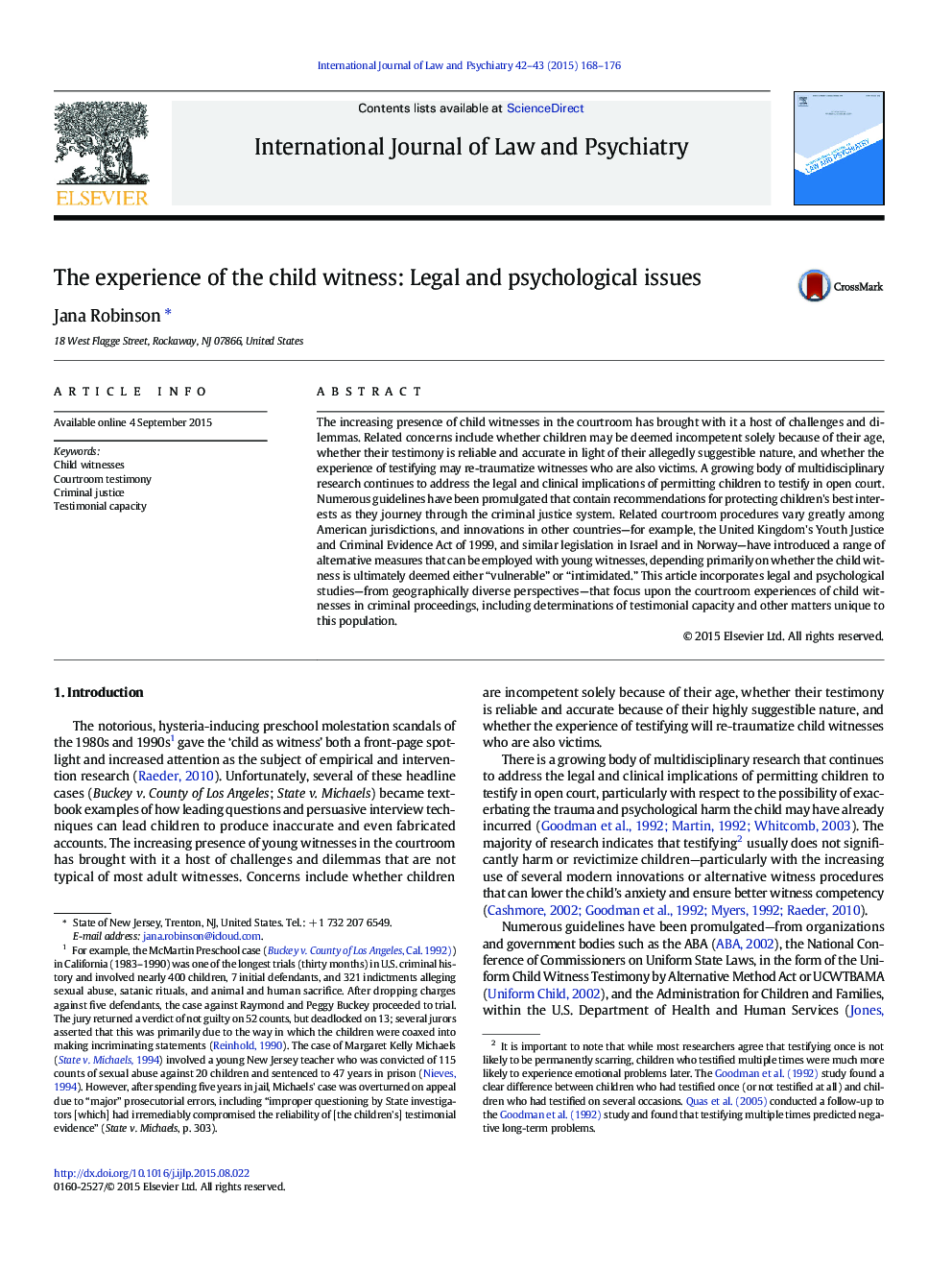| Article ID | Journal | Published Year | Pages | File Type |
|---|---|---|---|---|
| 100725 | International Journal of Law and Psychiatry | 2015 | 9 Pages |
The increasing presence of child witnesses in the courtroom has brought with it a host of challenges and dilemmas. Related concerns include whether children may be deemed incompetent solely because of their age, whether their testimony is reliable and accurate in light of their allegedly suggestible nature, and whether the experience of testifying may re-traumatize witnesses who are also victims. A growing body of multidisciplinary research continues to address the legal and clinical implications of permitting children to testify in open court. Numerous guidelines have been promulgated that contain recommendations for protecting children's best interests as they journey through the criminal justice system. Related courtroom procedures vary greatly among American jurisdictions, and innovations in other countries—for example, the United Kingdom's Youth Justice and Criminal Evidence Act of 1999, and similar legislation in Israel and in Norway—have introduced a range of alternative measures that can be employed with young witnesses, depending primarily on whether the child witness is ultimately deemed either “vulnerable” or “intimidated.” This article incorporates legal and psychological studies—from geographically diverse perspectives—that focus upon the courtroom experiences of child witnesses in criminal proceedings, including determinations of testimonial capacity and other matters unique to this population.
